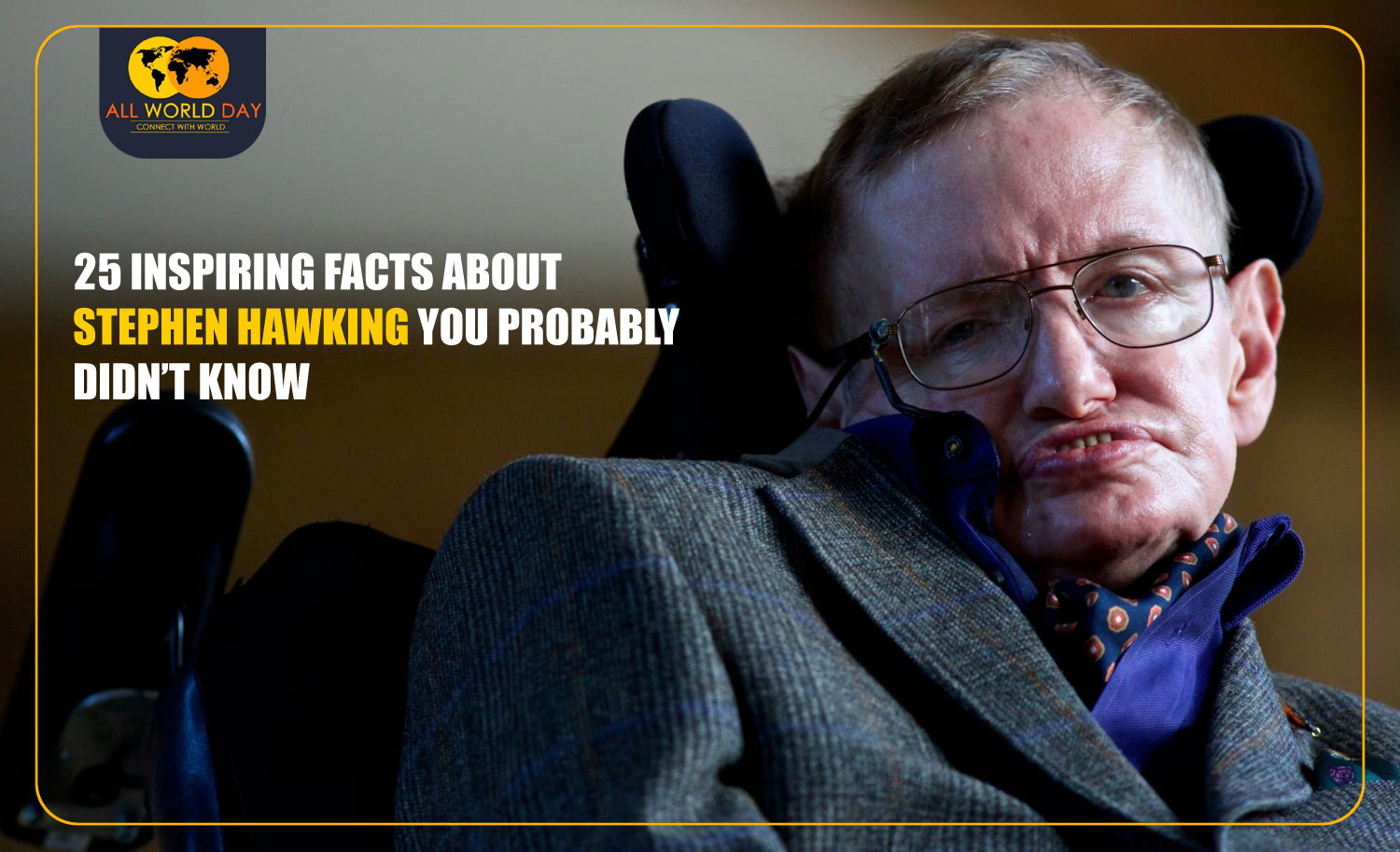Absolutely! Stephen Hawking, the renowned theoretical physicist, was not only a genius in his field but also an extraordinary individual.
Here are 25 lesser-known facts about the brilliant physicist Stephen Hawking:
1. Birthdate and Zodiac: Stephen Hawking was born on January 8, 1942, which is also the 300th anniversary of the death of Galileo Galilei. He was a Capricorn.
2. Oxford University: Hawking studied physics at University College, Oxford, where he was known for his wit and sense of humor, as well as his brilliance.
3. Disease Onset: Hawking was diagnosed with amyotrophic lateral sclerosis (ALS) at the age of 21, and doctors gave him only a few years to live. However, he defied the odds and lived for over 50 more years.
4. Family Life: Stephen Hawking was married twice. His first marriage was to Jane Wilde, with whom he had three children. He later married his nurse, Elaine Mason, but the marriage ended in divorce.
5. Father’s Profession: His father, Frank Hawking, was a research biologist.
6. Early Interest in Science: As a child, Hawking was fascinated by the cosmos and the stars. He built a homemade telescope with his friends and spent hours stargazing.
7. Cosmic Motivation: Hawking once stated that his goal was simple: “a complete understanding of the universe, why it is as it is and why it exists at all.”
8. The Bet with Kip Thorne: Stephen Hawking made a famous bet with physicist Kip Thorne regarding whether information was lost in black holes. He eventually conceded the bet, though the resolution is still a topic of debate in physics.
9. Einstein’s Birthday: Hawking passed away on March 14, 2018, which is also the birthday of Albert Einstein, another legendary physicist.
10. Pop Culture Appearances: Hawking appeared in several television shows, including “The Simpsons,” “Star Trek: The Next Generation,” and “The Big Bang Theory,” where he made multiple guest appearances.
11. Famous Book: His book “A Brief History of Time” was published in 1988 and became a bestseller, introducing complex scientific concepts to a general audience.
12. The Ice Bucket Challenge: Hawking participated in the ALS Ice Bucket Challenge, which helped raise awareness and funds for ALS research.
13. Losing his Voice: As his ALS progressed, Hawking gradually lost his ability to speak and used a computerized voice synthesizer to communicate.
14. Disability Rights Advocate: Despite his physical limitations, Hawking was a vocal advocate for the rights of people with disabilities and spoke out about the need for greater accessibility and inclusion.
15. Presidential Medal of Freedom: In 2009, Hawking was awarded the Presidential Medal of Freedom, the highest civilian honor in the United States, by President Barack Obama.
16. Famous Quote: One of his most famous quotes is: “The greatest enemy of knowledge is not ignorance, it is the illusion of knowledge.”
17. Lego Tribute: After his death, LEGO honored Hawking by creating a mini-figure in his likeness, complete with his wheelchair and computerized voice synthesizer.
18. Early Signs of Genius: Hawking was a late bloomer academically, but his brilliance was evident from an early age. He learned to read at the age of 3 and could multiply and divide simple numbers by 5.
19. Educational Background: He attended St Albans School, where he was a top student in mathematics and physics, despite being initially bored by the curriculum.
20. Scientific Contributions: Hawking made significant contributions to our understanding of black holes, the Big Bang, and the nature of the universe, earning numerous awards and accolades throughout his career.
21. Zero Gravity Flight: In 2007, Hawking experienced weightlessness aboard a specially modified Boeing 727 aircraft, fulfilling a lifelong dream of experiencing space travel.
22. Disability Accommodations: Hawking used a specially designed wheelchair and computer system to communicate, allowing him to continue his research and writing despite his physical limitations.
23. Fellowship at Gonville and Caius College: After completing his undergraduate studies at Oxford, Hawking pursued his graduate studies at the University of Cambridge, where he became a Fellow of Gonville and Caius College.
24. Motor Neuron Disease: ALS is a progressive neurodegenerative disease that affects nerve cells in the brain and spinal cord, leading to muscle weakness and eventually paralysis.
25. Legacy: Stephen Hawking’s legacy extends far beyond his scientific contributions. He inspired millions of people around the world with his determination, intellect, and humor, leaving an indelible mark on the world of science and popular culture.


